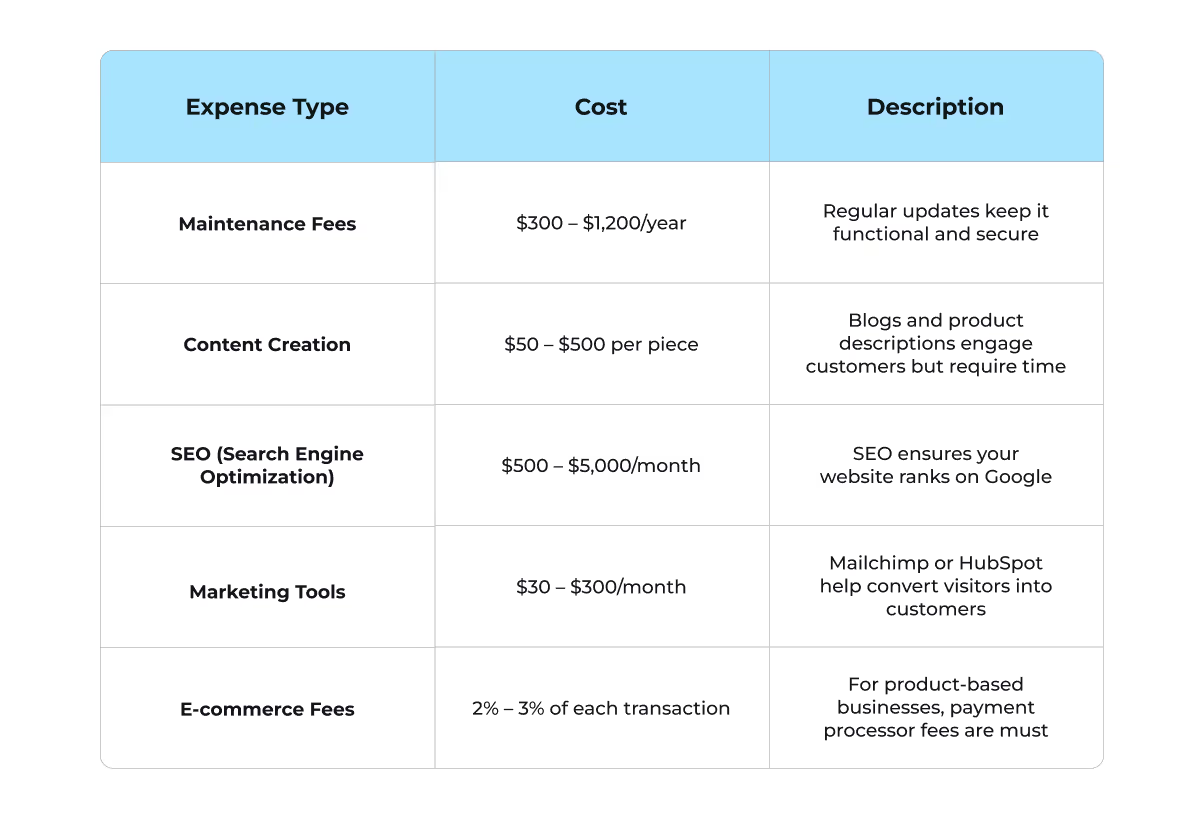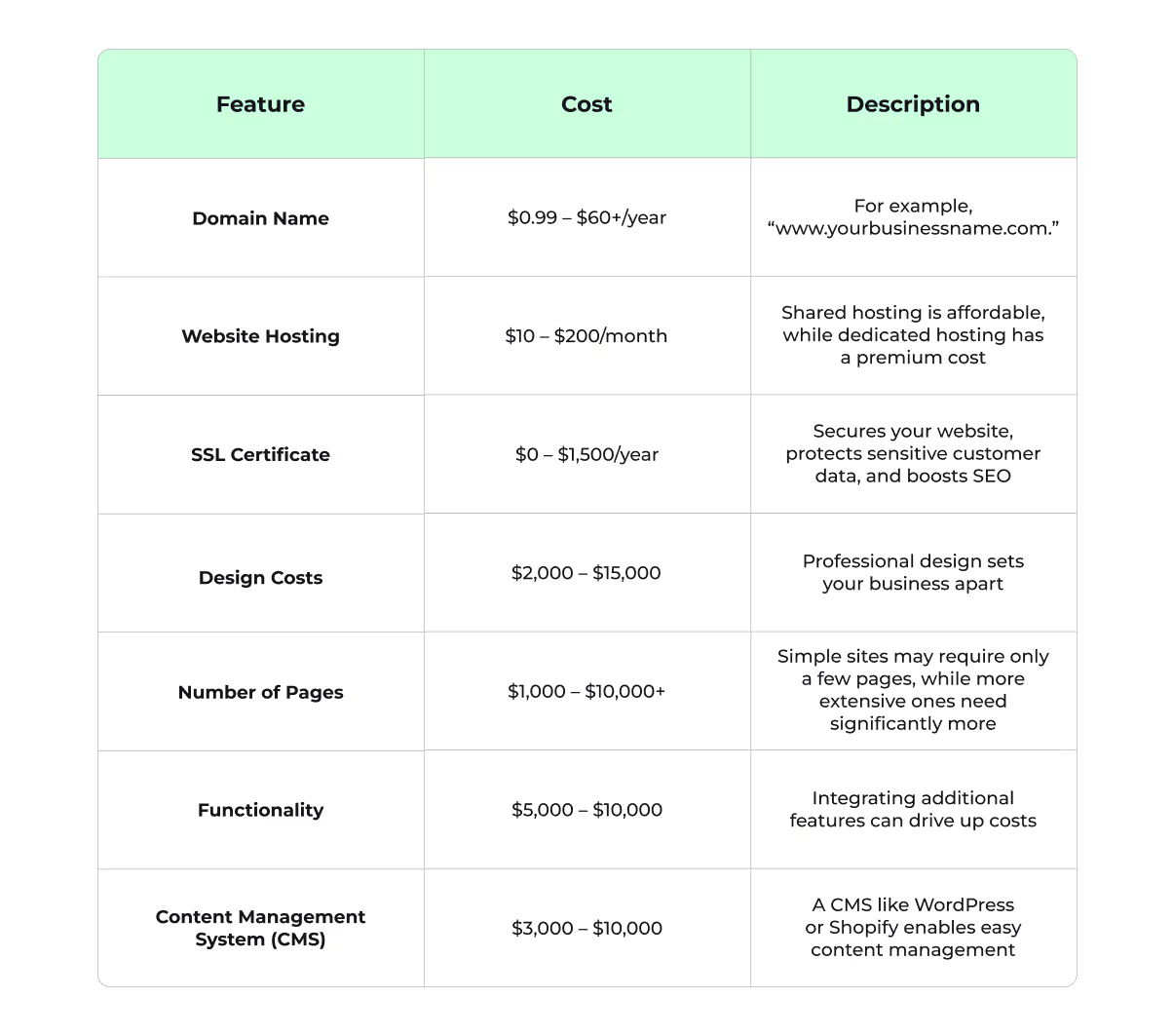
Find out how much it costs to build a professional website for your small business in 2025. Explore itemized expenses and why a good website matters.
Wondering how much it costs to build a professional website for your small business in 2025? You're not alone. In today's digital-first economy, your website is your storefront, marketing engine, and credibility builder—rolled into one.
But when you start looking into small business website development costs, the numbers are all over the place. From drag-and-drop builders to custom web development agencies, the price can range from a few hundred to tens of thousands of dollars.
So what exactly should a small business expect to spend on a website in 2025?
This guide breaks down realistic website pricing, key cost drivers, and hidden expenses, so you can plan smarter and launch with confidence.
The cost of website development for a small business in 2025 can vary wildly depending on the complexity, functionality, and design choices. On average, small businesses will spend anywhere from $1,000 to $48,000 to build a site. And, for example, according to GoDaddy data, the average cost to hire someone to build a large-scale ecommerce website is $10,000.
Here's why the website costs range so widely:
A 5-page website (think Home, About Us, Services, Blog, and Contact Us) costs far less than a 50-page e-commerce website.
Customized websites designed from scratch by a web design agency can easily cost $10,000 or more, whereas websites built with website templates (e.g., through platforms like Squarespace or Wix) are significantly cheaper.
Advanced features like online stores, booking systems, or membership portals will increase website development costs.
Rush timelines often require extra funds for expedited work from a website design company.
“Social media is borrowed land. Your website? That’s real estate you own.”
— Neil Patel, Digital Marketing Expert
Kelvin Igweshi, Blogger

These numbers may seem intimidating, but remember, your website is an investment in your business's credibility and growth.

Once the website is built, there are ongoing costs to consider. Here's what to keep in mind:
Not sure if having a website is the right move? Consider these key benefits.
First impressions matter, and having a professional online presence shows potential customers that you're serious about your business. Compare that to the risks of skipping a website or relying solely on social media, which 84% of consumers view as less credible than websites.
Over 80% of consumers look up a business online before deciding to buy. Without a website, you're invisible to a majority of potential customers who turn to Google first.
Small businesses with websites tend to grow twice as fast as those without one, with revenue increasing by as much as 50% when they use their website to actively engage customers.
From highlighting your unique value proposition to showcasing customer testimonials, a website lets you control your narrative. It's your opportunity to stand out in a crowded market.
Whether it's through a blog, live chat, or online store, a website allows you to engage customers 24/7—something no physical storefront can do.
Creating a website is no longer optional—it’s your #1 asset for building trust, driving leads, and staying competitive.
Q1. Can I build a website myself to save costs?
Absolutely! DIY tools like website builders such as Wix or Squarespace allow you to build basic websites. However, these may limit customization and scalability. Professional web design services, though pricier, can tailor a site to your evolving needs.
Q2. How long does it take to build a small business website?
A simple website can be completed in 2–4 weeks, while larger sites with advanced features may take 3–6 months.
Q3. Are there any hidden costs for small business websites?
Keep an eye on additional features, third-party integrations, or hefty maintenance fees. Always ask for a detailed breakdown of costs upfront, including domain name costs and ongoing website hosting costs.
Q4. What's the ROI of having a professional website?
Think of your website as a digital employee. Done right, it provides ongoing leads, trust-building, and even direct sales—all of which justify the upfront website building costs.
Q5. What industries benefit the most from having a website?
From retail and restaurants to consultancies and service-based businesses, any industry that relies on a local or online presence gains enormous value from a well-designed website.
A professional website is one of the most cost-effective ways to grow your small business in 2025. Whether you're DIYing it with a website builder or partnering with web design services, understanding the costs and long-term benefits ensures you'll make the right choices.
Don't wait - reach out to professionals who can bring your vision to life.
Are you ready to invest in your business’s future?
Contact us